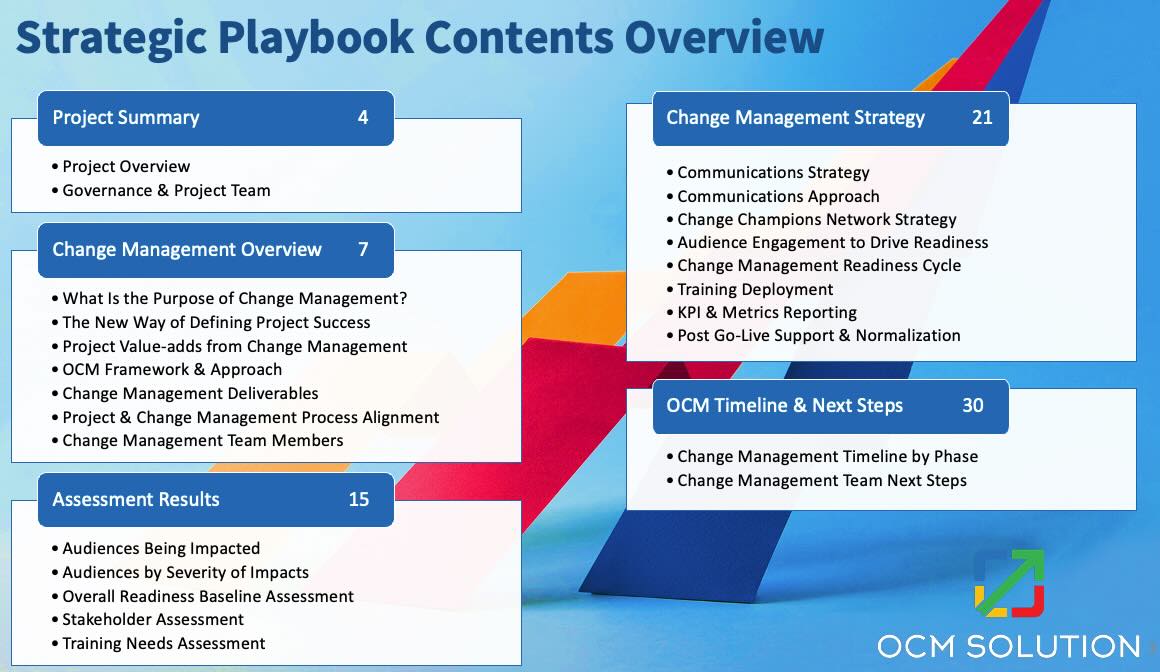The Transformation Trap: Why Initiatives Fail (and How to Avoid It)
Did you know that up to 70% of change initiatives fail due to a lack of proper management? Ouch. But there’s good news! By implementing effective change management strategies, organizations can dramatically increase their chances of success.
This article unveils the secrets behind successful change management while outlining the key benefits. We’ll also circle around and dive into the advantages and benefits of change management and finally equip you with the knowledge to navigate even the most challenging transformations within your organization.

Story Highlights
|
Why Does Skipping Change Management Equal a Recipe for Disaster?
One of the primary benefits of change management lies in its ability to address the human aspect of change within organizations. By employing change methodologies, organizations can guide individuals through transitions, aiding them in relinquishing old habits and embracing new ones. The importance of organizational change, driven by the need for growth, innovation, and adaptability, underscores the necessity of change management to prevent project failures and organizational stagnation.
Outpace or Get Outpaced: Why Change Management is the Key to Staying Competitive
Organizational change yields various benefits, including increased profitability, operational efficiency, and resilience in the face of unexpected events. Without embracing change, organizations risk remaining entrenched in outdated processes that hinder progress and competitiveness. Moreover, adapting to evolving consumer behaviors, such as the shift towards digital consumption during the pandemic, underscores the importance of organizational agility facilitated by change management.
Why it’s always best to choose the right tools for the job
Change management tools are essential for navigating resistance to change among stakeholders. These tools encompass:
- Stakeholder analysis
- Impact assessment
- Leadership coaching
- Change champions
- Resistance management
- Communication plans
- Training
- Change reinforcement
By addressing stakeholders’ concerns and fostering support for change, organizations can prevent projects from stalling and failing due to opposition.
Unlocking the Change Code: Essential Models and Strategies for Leading Transformation
To initiate change management effectively, organizations must familiarize themselves with various models and methodologies. Hiring change management consultants or providing training to staff can equip them with the necessary skills to manage change projects successfully. By embracing change management principles and practices, organizations can harness the full benefits of organizational change and drive sustained growth and innovation.
Do you have any questions or feedback about what are the benefits of change management? We’d love to hear from you. Reach out here.
What Are the Benefits of Using Change Management for a Project? Everything You Need to Know
When a company is implementing a business change, for example, implementing new solutions or business processes, a change management manager or team will often be engaged to support the people side (adoption and enablement) of the project.
The importance of change management in projects has been evident for decades, but particularly in this decade, based on the increase in technological advances.
While change has always been around, it’s been accelerated by digitalization and organizational innovation. First, there was the adoption of computer workstations; then, wireless networks became an office necessity. In the past decade, the cloud has been the main driver of organizational change.
During any type of change, whether it’s to adopt a new process or to lower overhead, people are impacted. The way they have been doing things is changing, and letting go of old routines and adopting new ones isn’t typically easy.

Benefits of Change Management Process
Change management benefits include addressing the impact that change has on people in an organization.
Change methodologies are used to guide people through changing how they do things today and help them adopt the new behaviors needed for the transformational project.
The importance of organizational change, which includes the need to grow, innovate, and adapt to outside circumstances, dictates the need for change management. Without it, projects can easily fail, and organizations end up stuck and unable to adapt.
If you’ve ever wondered what causes organizations to change or asked, “Why do we need change management?” this OCM Solution article will help answer those questions.
What You’ll Find Inside
- Information on the importance of organizational change
- Details on the many benefits of change management
- An understanding of the importance of change management in projects
- Downloadable importance of change management PPT
See Also: Change Management Definition
Importance of Organizational Change
The benefits of organizational change are realized in several ways. These can include increased profits, better operational efficiency, and the ability to recover quickly after an unexpected event.
Without the ability to change, organizations stay stuck in old processes that no longer serve them well. Such as a company that has to spend money to hire temp workers each quarter just to collate non-automated reports coming in from different branches.
The benefits of organizational change are also realized by companies that are able to adapt to changes in consumer behavior.
Since the pandemic started, consumers have switched to a “homebody economy,” going out less and looking for digital ways to replace in-person activities. One way that movie studios have changed to adapt is by doing streaming releases of movies that would’ve normally been released in theatres.
Those organizations that don’t change or haven’t tapped into the importance of organizational change management are the ones that get left behind their competition and end up stagnant instead of growing.
Ultimately, change is a constant, and it happens whether it’s planned or caused by outside events. For an organization to stay relevant, healthy, and growing, it has to not only embrace change but use the right tools to make it happen successfully.
Why Do We Need Change Management?
When it comes to the tools to make change happen successfully, they’re all summed up in the benefits of change management.
Change management is the process, and best practices used to help guide an organizational transformation, explicitly focusing on the people aspect of the change project.
Going through a change is about more than putting a new software or procedure in place and just expecting everyone to follow it. The answer to, “Why do we need change management?” is that people are the ones that need to change for any organizational change to be successful.
Many of the tools used in change management are about guiding those impacted by the change. This includes assessing how the change will impact what they do every day, addressing their natural resistance to change, and putting support and training in place.
Need for Change Management | Change Management Tools
People will naturally be resistant to a change in their work routine, which is why many of the tools in change management address how impacted people (known as stakeholders) are receiving the change. Change managers use soft skills to help stakeholders move to a state where they are supportive of the change.
If stakeholders aren’t supportive of a change, they can bring a change project to a screeching halt and cause it to fail.
Here are some of the “people” management tools in the change management toolkit:
- Stakeholder Analysis: Who is being impacted by a change?
- Impact Assessment: How are people going to be impacted by a change?
- Leadership Coaching: How can leaders help support the change in their departments?
- Change Champions: Who is well respected and can help colleagues through resistance?
- Resistance Management: How can we address resistance and turn it into support?
- Communication Plan: How can we keep a flow of vital change communications?
- Training Plan: How can we ensure users gain the abilities they need for the change?
- Change Reinforcement: How can we support users after the change to ensure it is sustained?
What are the Benefits of Organizational Change Management?
The importance of change management in projects is underlined by the fact that it gets to the heart of any successful organizational change project, which is to ensure people change so the organization can change.
There are several benefits of organizational change management, including:
- Giving change projects a structure and strategy
- Helping to keep change projects on budget and timeline
- Having a plan to address employee resistance to change
- Use of proven change theories and best practices
- Incorporation of both project management and people management
- Designed to drive project success and help the change meet or exceed expectations
Don’t Miss: The Best Ways to Manage, Deal, and Cope with Change at Work
Contact us if you have any questions or feedback about this guide on the advantages of change management.
Effects of Change Management in an Organisation (UK) or Organization (US)
Whether you’re with an organisation in the UK or a US organization, the benefits of change management process planning can stay with your company for years after the initial change project.
If you want to see the best and the worst of people, you put them through a stressful situation. The same is true of organizations, and change can be stressful for all involved.
Change management benefits include using practices that are often based on human behavior and psychology, which are designed to take negative feelings about a change and transform them into positive ones.
This isn’t always easy due to the vast personality types in any company and the fact that change may be unwelcome, as in the case of downsizing. But, having the tools to deal with all the emotions that come up during any change is one of the benefits of change management best practices.
Three change models that look at human behavior and are based upon the study of hundreds of organizational changes are excellent examples of change management benefits to organizations going through a transition.
These models are:
Beyond driving successful change and ensuring change management projects stay on track, on budget, and achieve results, the benefits of organizational change management can have several effects on an organization.
When done well, these effects from change management benefits can improve the relationships and morale in an organization as well as improve the skills of leaders. Here are several of the ways that the benefits of change management process implementation can have long-lasting positive impacts on an organization.
Improves Leadership Skills
Part of the change management process includes leadership coaching. This is done to help leaders become aware of the basics of change management, such as managing resistance and help them better guide their direct reports through the change.
Change management involves certain leadership soft skills, which can help enrich the overall leadership skills of managers and executives in the organization and give them new tools that will help them in their daily management of staff.
Creates a Sense of Team Purpose
The need for change management means an organization is going through some type of change together. This can lead to a sense of shared purpose as everyone pitches in to do their part to make the project a success.
Change management benefits can include involving employees that may be “loners” in group projects and meetings that bring them into the fold and help them connect to their colleagues.
Having a sense of team can reduce friction and improve interpersonal relationships among those in your organization.
Helps Everyone See Their Importance
At the heart of change management is that every single person in the organization is important. Without them all pulling together to make the change happen, it’s bound to fail.
The importance of organizational change can remind employees (and those who supervise them) that the workers are the most important part of an organization. If the organization wants to change as a whole, it only happens from the bottom up when people choose to change and support a change project.
Facilitates Better Communications
Poor communication is often cited by employees and executives alike as a major reason for organizational failures.
A pillar of change management best practices is thorough communications planning to ensure everyone is kept in the loop about the change project progress, what’s happening, and what to expect.
One of the benefits of change management process planning is that an organization can learn to communicate better all the time after going through the communication plan designed to facilitate a change project.
Uncovers Organizational Problems
Change management requires everyone in an organization to pull together towards a common goal, and the disruption to normal activities often causes stress and confusion.
While it may not be comfortable at the time, one of the benefits of organizational change management can be that it uncovers issues that need to be addressed for an organization to be healthy and ready to grow and move forward.
These can be process or workflow problems or personality and management problems. But it’s always better to have them addressed than buried, and going through the process of change management can bring them to the surface and allow you to resolve them.
Brings Order to Change Chaos
The need for change management is evident if you’ve ever tried to implement a project requiring a change in how things are done without it.
Change management provides a roadmap to follow to implement a change project, including the steps needed for logistical planning and for guiding people through a change and turning resistance into support.
One of the most significant change management benefits is that it brings order to the chaos that can surround an organizational project if it isn’t handled adequately.

Keeps Organizations Innovating
Organizations that dread change will tend to put it off. This means they’ll soon fall behind their peers and could end up being too inflexible to adapt well to any unexpected world events.
Keeping your organization in the “dark ages” when it comes to technology, hurts growth and your bottom line. Companies that continue innovating are shown to do better than those that don’t in a number of indicators, such as revenue earned per employee, and being job creators.
One of the lasting benefits of change management is that once an organization understands how to go through a change successfully, they’re no longer going to be as resistant to change in the future. This leads to a culture of innovation and excitement to meet the next challenge.
Related: Project Management Fees | Hourly & Consulting Rates
Provide an Example Where Change Management Was Used to Improve an Organization
There are many examples out there that answer the question, “Why do we need change management?” Some of the most successful brands went through periods where they had to change or face a bleak future.
Lego’s Change Story
One of these is the beloved plastic brick maker, Lego. For many years, up until about 1998, Lego did well and saw profits every year. But as video games were coming of age in the early 2000’s it saw a drop in sales of about 30% and was getting into severe financial trouble.
Between 2003 and 2015, the company completely turned itself around. Its change management project included reconnecting with its core audience (now interested in video games) and bringing out new products that tapped into the digital world and further expanding their reach through Lego-themed movies.
McDonald’s Change Story
The book “Fast Food Nation,” which came out in 2001, discussed the negatives of the fast-food franchises, such as McDonald’s. It branded them as places with high-calorie options providing little nutrition.
The bad press hurt sales, and since that time, McDonald’s completely revamped its menu to meet consumer demand for healthier items. This successful change resulted in better food options with fewer calories and more nutrition and the addition of McCafe to improve its image and offerings.
The University of Virginia Change Story
On Prosci’s website, one of the examples of change management benefits is about the University of Virginia. It leveraged the ADKAR model to integrate project management and change management.
Additionally, the university increased the organization’s capacity for change by developing a change portfolio. This allowed it to further the university’s culture of excellence and better manage the impact of multiple changes on its staff and students.
Would you like to receive content related to the benefits of change management? Sign up for our monthly newsletter filled with OCM tips and knowledge.
The Need for Change Management | How to Get Started
Once you understand the importance of organizational change and change management benefits, how do you get started?
It helps first to become familiar with the various change management models and methodologies. These will give you a good idea of the best practices that are part of change management.
If you need change management for an upcoming project, then you may want to hire a change management consultant or have one or more of your staff go through change management training to learn the basic tenants of managing change.
It’s also helpful to work with a change management tool that can guide you through the process of change management, step-by-step, such as the OCM Solution All-in-One change management tool.
It’s essential to become familiar with change management and have someone leading your change project that knows the best practices of managing change if you want to experience the full benefits of change management.
Popular article: Change Management Training | All You Need to Know
Importance of Change Management PPT | Download
One way to learn more about managing change in a project is to download the importance of change management PPT or other resources.
By studying the right resource, you can learn a lot about how to manage people through a change and how to achieve desired change management benefits.
If you’ve been looking for the importance of change management PPT or downloadable step-by-step guide, we have the perfect resource. Our OCM Solution Change Management Strategic Playbook PowerPoint (PPT), includes information on the benefits of change management, the importance of organizational change management, and best practices.

Download the OCM Solution Change Management Strategic Playbook
OCM Solution Conclusion: Change Management Benefits for Organizations
History shows us the importance of organizational change, whether it’s to innovate and grow or to change to survive. Whatever the driver for the change, to make it happen successfully, you have to ensure people impacted by the change have the tools and support to make the change happen at the ground level.
Change management benefits include bringing order to a transitional project, resolving resistance to change, and keeping the change project – people and processes – aligned to meet the end goal.
Why do we need change management? Because without using the methodologies and best practices of change management, many projects end up going off the rails and either failing or not achieving the desired outcome.
The importance of change management in projects is seen when projects succeed because people were given the attention, tools, and support they needed to adapt to the necessary processes.
The benefits of change management make it an integral part of any organization’s core skills and one that will continue serving a company well years after a change project has been completed.
Note: Content on OCM Solution's ocmsolution.com website is protected by copyright. Should you have any questions or comments regarding this OCM Solution page, please reach out to Ogbe Airiodion (Change Management Lead) or the OCM Solutions Team today. OCM Solution was previously known as Airiodion Global Services (AGS).
Images: stock.adobe.com





